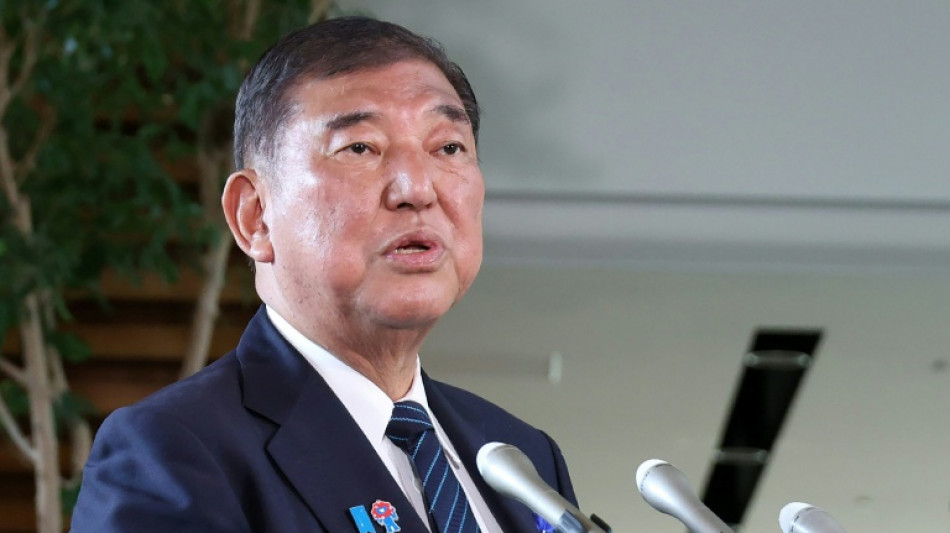
-
 'We pulled the children out in pieces': Israel pummels Gaza City
'We pulled the children out in pieces': Israel pummels Gaza City
-
Stocks diverge, dollar down as Fed meets on rates

-
 Zandvoort, Singapore to host F1 sprints for first time in 2026
Zandvoort, Singapore to host F1 sprints for first time in 2026
-
Afghan man gets life in prison for jihadist knife killing in Germany

-
 Shipowner linked to giant Beirut port blast held in Bulgaria
Shipowner linked to giant Beirut port blast held in Bulgaria
-
E. Timor police clash with protesters over plan to buy vehicles for MPs

-
 Israel launches ground assault on Gaza City
Israel launches ground assault on Gaza City
-
Malawi votes in battle of two presidents as economic crisis bites
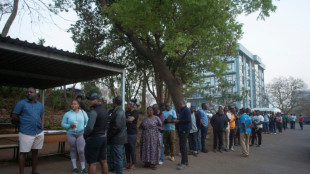
-
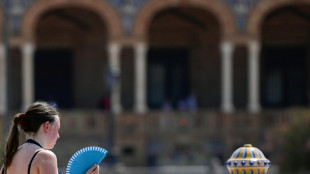 2025 summer was Spain's warmest on record: weather agency
2025 summer was Spain's warmest on record: weather agency
-
Gout of this world? Australian teen sprinter set for first real test

-
 Smoke-dried bodies could be world's 'oldest mummies': study
Smoke-dried bodies could be world's 'oldest mummies': study
-
Afghan gets life in prison for jihadist knife murder in Germany

-
 Trump bringing $15 bn lawsuit against New York Times
Trump bringing $15 bn lawsuit against New York Times
-
Juan Mata moves to Melbourne from Australian rivals

-
 UN investigators say Israel committing 'genocide' in Gaza
UN investigators say Israel committing 'genocide' in Gaza
-
Rubio asks Qatar to stay as mediator after Israel strike
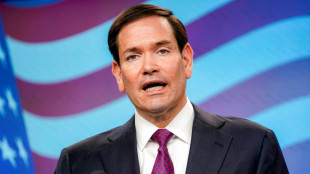
-
 Drug cheats put India Olympic bid and careers at risk
Drug cheats put India Olympic bid and careers at risk
-
East Timor police fire tear gas on second day of car purchase protests
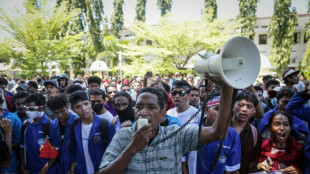
-
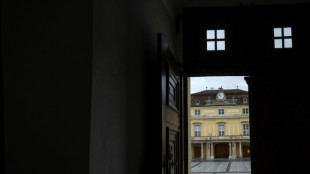 Austria hit with fresh spy claims after govt promises law change
Austria hit with fresh spy claims after govt promises law change
-
Floods devastate India's breadbasket of Punjab

-
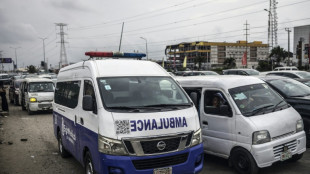 In mega-city Lagos, 20 million count on just 100 ambulances
In mega-city Lagos, 20 million count on just 100 ambulances
-
FBI chief Kash Patel faces Senate panel
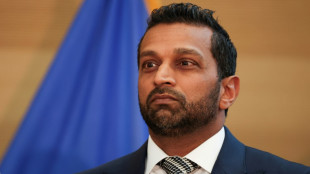
-
 Trump says bringing $15 bn lawsuit against New York Times
Trump says bringing $15 bn lawsuit against New York Times
-
Israel sets Gaza 'on fire' as Rubio warns days left for deal

-
 Phillies clinch first MLB division by beating Dodgers
Phillies clinch first MLB division by beating Dodgers
-
'Nothing here': Lack of jobs forces young Nepalis abroad
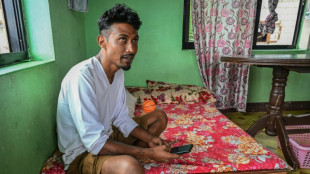
-
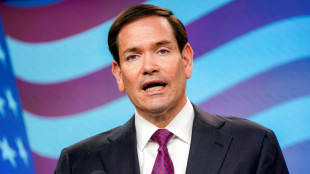 Rubio asks Qatar to stay as mediator after Israeli strike
Rubio asks Qatar to stay as mediator after Israeli strike
-
Trump set for unprecedented second UK state visit
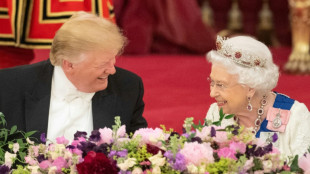
-
 Lower US tariffs on Japan autos kick in
Lower US tariffs on Japan autos kick in
-
Revamped Bayern face early test as Chelsea come to town

-
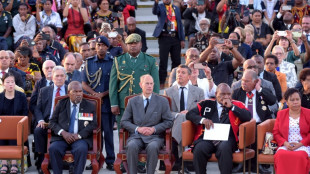 Papua New Guinea, Australia to vow mutual defence in new treaty
Papua New Guinea, Australia to vow mutual defence in new treaty
-
Malawi election a battle of two presidents
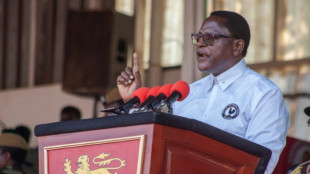
-
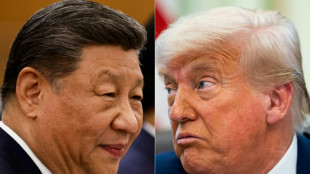 Asian markets rise as traders prepare for expected US rate cut
Asian markets rise as traders prepare for expected US rate cut
-
Malawi votes in a rematch between two presidents as economic crisis bites

-
 Australia says social media ban will not age test all users
Australia says social media ban will not age test all users
-
Poland's Nawrocki talks drone defence in Paris and Berlin

-
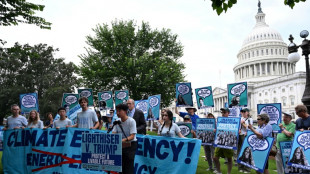 Trump's fossil fuel agenda challenged in youth climate suit
Trump's fossil fuel agenda challenged in youth climate suit
-
PSG fear impact of injuries as they put Champions League title on the line

-
 Papua New Guinea, Australia will commit to mutual defence
Papua New Guinea, Australia will commit to mutual defence
-
Trash, mulch and security: All jobs for troops in Washington

-
 U.S. Polo Assn. Celebrates Sport and Style as Official Apparel Sponsor of the 2025 Engel & Völkers Berlin Maifeld Polo Cup
U.S. Polo Assn. Celebrates Sport and Style as Official Apparel Sponsor of the 2025 Engel & Völkers Berlin Maifeld Polo Cup
-
NFL legend Brady to play in March flag football event at Riyadh

-
 Lower US tariffs on Japan autos to take effect Tuesday
Lower US tariffs on Japan autos to take effect Tuesday
-
US strikes second alleged Venezuelan drug boat as tensions mount
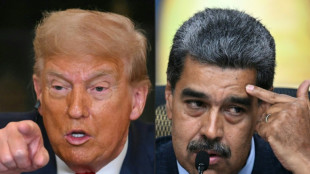
-
 Protesting Peru residents block trains to Machu Picchu
Protesting Peru residents block trains to Machu Picchu
-
US strikes another alleged Venezuelan drug boat as tensions rise
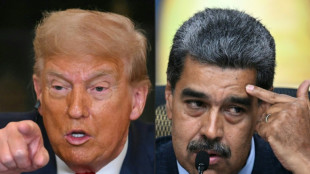
-
 White House vows to take on left-wing 'terror' movement after Kirk killing
White House vows to take on left-wing 'terror' movement after Kirk killing
-
Brazil's Amazon lost area the size of Spain in 40 years: study

-
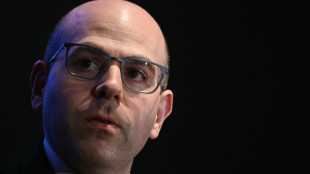 US Senate poised to advance Trump aide's appointment at Fed
US Senate poised to advance Trump aide's appointment at Fed
-
Sri Lanka survive Hong Kong scare for four wicket Asia Cup win
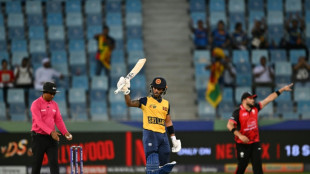

Japan PM faces reckoning in upper house election
Japanese Prime Minister Shigeru Ishiba faces a reckoning from voters on Sunday with upper house elections that could end his premiership and see a right-wing populist party make inroads.
With many Japanese hurt by rising prices, especially for rice, opinion polls suggest that Ishiba's governing coalition could lose its majority in the upper house.
This could be the final nail for Ishiba, having already been humiliatingly forced into a minority government after lower house elections in October.
"Ishiba may need to step down," Toru Yoshida, a politics professor at Doshisha University, told AFP.
Japan could "step into an unknown dimension of the ruling government being a minority in both the lower house and the upper house, which Japan has never experienced since World War II," Yoshida said.
Ishiba's centre-right Liberal Democratic Party (LDP) has governed Japan almost continuously since 1955, albeit with frequent changes of leader.
Ishiba, 68, a self-avowed defence "geek" and train enthusiast, reached the top of the greasy pole last September on his fifth attempt and immediately called elections.
But this backfired and the vote left the LDP and its small coalition partner Komeito needing support from opposition parties, stymying its legislative agenda.
"Energy prices have swung sharply in recent months, as the government has flip-flopped between removing aid for household energy bills and adding new supports," said Stefan Angrick at Moody's Analytics.
- Trumped -
Out of 248 seats in the upper house, 125 are up for grabs on Sunday. The coalition needs 50 of these to keep a majority.
Not helping is lingering resentment about an LDP funding scandal, and US tariffs of 25 percent due to bite from August 1 if there is no trade deal with the United States.
Japan's massive auto industry, which accounts for eight percent of the country's jobs, is reeling from painful levies already in place.
Weak export data last week stoked fears that the world's fourth-largest economy could tip into a technical recession.
Despite Ishiba securing an early meeting with US President Donald Trump in February, and sending his trade envoy to Washington seven times, there has been no accord.
Trump last week poured cold water on the prospects of an agreement, saying Japan won't "open up their country".
"We will not easily compromise," Ishiba said earlier this month.
Ishiba's apparently maximalist strategy of insisting all tariffs are cut to zero -- although this could change post-election -- has also drawn criticism.
"How well his government is able to handle negotiations over US tariffs is extremely important, as it's important for the LDP to increase trust among the public," Masahisa Endo, politics professor at Waseda University, told AFP.
- 'Japanese first' -
The last time the LDP and Komeito failed to win a majority in the upper house was in 2010, having already fallen below the threshold in 2007.
That was followed by a rare change of government in 2009, when the now-defunct Democratic Party of Japan governed for a rocky three years.
Today the opposition is fragmented, and chances are slim that the parties can form an alternative government.
One making inroads is the "Japanese-first" Sanseito, which opinion poll suggest could win more than 10 upper house seats, up from two now.
The party wants "stricter rules and limits" on immigration, opposes "globalism" and "radical" gender policies, and wants a re-think on decarbonisation and vaccines.
Last week it was forced to deny any links to Moscow -- which has backed populist parties elsewhere -- after a candidate was interviewed by Russian state media.
"They put into words what I had been thinking about but couldn't put into words for many years," one voter told AFP at a Sanseito rally.
T.Egger--VB
